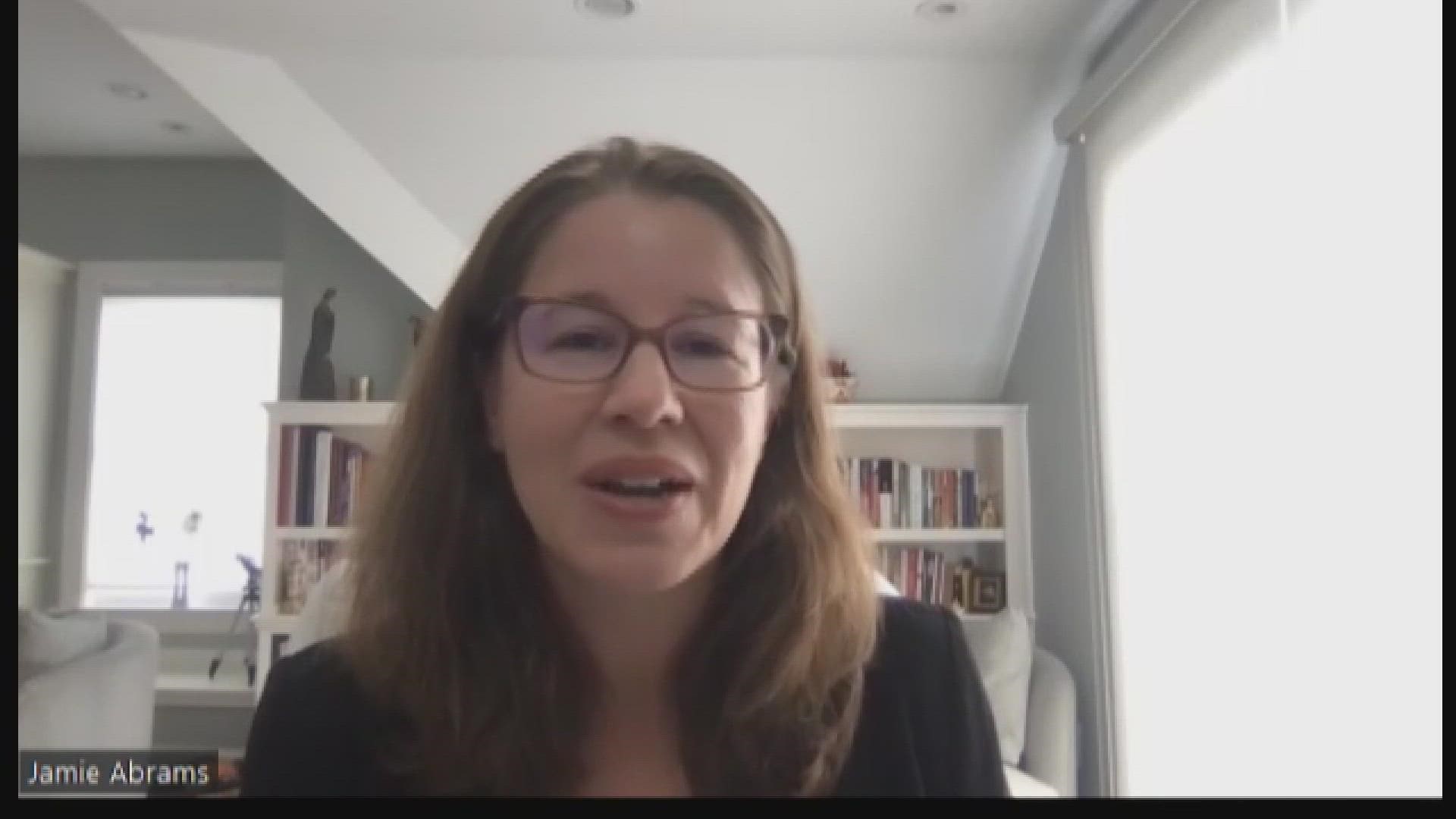WASHINGTON — Professor Jamie Abrams has fought for others' reproductive rights for years. Now, they've become a key part of her own health battle.
Abrams has taught family law and reproductive and birthing decision for 15 years. Recently, she signed on as a law professor at American University.
In May, she gained a new perspective.
“I found myself in a pretty stunning reality when I was diagnosed with invasive breast cancer on the same day, that the Dobbs opinion leaked back in early May," Abrams said. "And that just opened up a really searing and powerful window into the sort of new versions of American health care that we're going to see throughout the country.”
Abrams said abortion is one part of her healthcare conversations with her doctors.
During her diagnosis, the last thing she said her doctor mentioned was to stop hormonal birth control.
Plus, she has been required to take a pregnancy test before every key medical test as a contingency to proceed with the next steps.
“It became really clear to me that at age 44, I was the person who would need an abortion if I were to become pregnant along this journey," she said. "And so it's been a really powerful moment to really situate a conversation that is so narrowly framed around abortion in our law. But in our human lived reality, it is so much broader."
Abrams also just left her job in Kentucky, where abortion laws are shaping up to be very different than where she lives in northern Virginia.
“But on the ground, it doesn't differ from Kentucky to New York to Virginia to Illinois, what people's lived experiences are managing their pregnancies and managing the reproductive life course," she said. "Only the law and the way that pregnant women are treated differs now.”
Her main point is that while the political conversation centers on abortion access, that's only one part of healthcare that's now in jeopardy.
“Abortion cannot be surgically extracted from women's health care and from family decision making, like contraception, like intimacy, like family formation," she said. "And so those collateral pieces, I think, are really important for ordinary people to speak up about.”
Abrams said she is doing well in her own breast cancer fight, because she has a lot of support from doctors and organizations trusting her to make decisions about her body. She wants that right to be protected no matter where people live.

